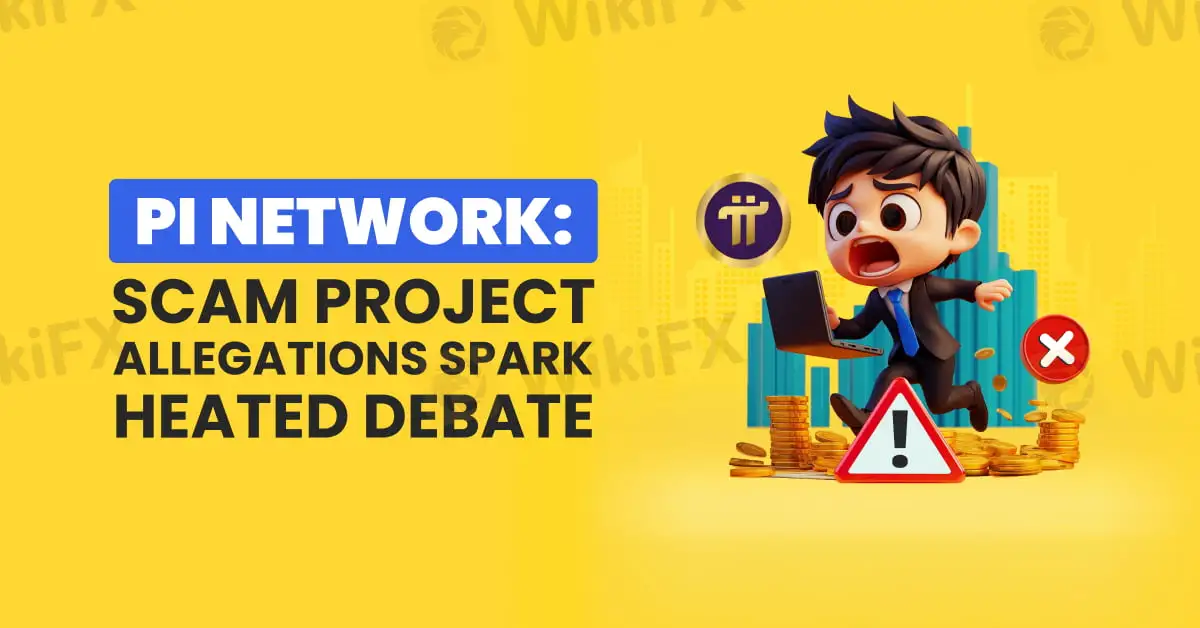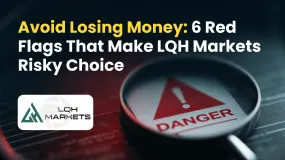简体中文
繁體中文
English
Pусский
日本語
ภาษาไทย
Tiếng Việt
Bahasa Indonesia
Español
हिन्दी
Filippiiniläinen
Français
Deutsch
Português
Türkçe
한국어
العربية
Pi Network: Scam Allegations Spark Heated Debate
Abstract:A whistleblower report has surfaced, casting doubt on the legitimacy of Pi Network, alleging psychological manipulation, opaque operations, and potential financial exploitation. What is your take on this?

Since its launch in 2019, Pi Network has captivated millions across the globe with a deceptively simple proposition: “Mine a new digital currency from your phone, entirely for free.” To many, it represents a groundbreaking democratisation of cryptocurrency. Yet, to others, recent whistleblower reports hint at a far more troubling narrative, alleging that Pi Network could eventually be remembered as one of the most extensive “soft scams” in the history of the internet.
While these claims remain unproven, the allegations have reignited debate about the true nature of Pi Network's operations.

It has been suggested that Pi Networks success relies heavily on a powerful psychological mechanism known as “free scarcity.” By offering users coins for nothing more than a daily tap on an app, the platform reportedly cultivated a sense of ownership and value, despite critics arguing, no demonstrable economic worth is currently attached to the coins.
However, proponents of Pi Network argue that early-stage projects often begin in closed environments and that patience is necessary before judging their real-world impact.
According to whistleblower claims, the referral system, where users mine faster by inviting friends, bears a resemblance to structures often associated with pyramid models. Skeptics allege that this emphasis on constant recruitment over tangible product development could hint at systemic weaknesses.
Yet supporters counter that network-building is crucial for any blockchain-based platform and that such growth mechanisms are commonplace across successful tech start-ups.
The whistleblower report highlights concerns over Pi Networks prolonged absence from major exchanges and the opaque nature of its closed “demo” environments. Critics debate that the lack of open-source verification, independent audits, or a clear roadmap toward full decentralisation raises questions about the project's legitimacy.
On the other hand, it is worth noting that many legitimate technology projects have spent years in development before achieving full market integration, and Pi Networks team has consistently assured users that broader accessibility is forthcoming.
The allegations also extend to user privacy. It is claimed that Pi Networks mobile application requests extensive access to personal data, including contact lists, geolocation, and device usage statistics, without clear disclosures regarding its ultimate use.
While some view this as a potential vector for exploitation, others suggest that data permissions are standard across numerous apps and that there is, as yet, no firm evidence that Pi Network has misused the information it collects.
Perhaps the most contentious assertion involves the speculation that a significant proportion of Pi tokens (allegedly over 20–25%) is held by the founding team. Critics fear that upon market opening, a surge of selling by insiders could flood the market, drastically devaluing Pi and leaving everyday users at a loss.
Yet, defenders of the project argue that team allocations are a standard practice across the cryptocurrency world to reward developers and fund ongoing operations, and that safeguards may yet be introduced to prevent destabilisation.
The emotional and psychological investment of Pi Networks user base is considerable. According to the whistleblower report, millions may have dedicated years of daily effort to a dream that, some allege, has yielded no substantial profit to date.
Nonetheless, many users remain optimistic, citing ongoing development updates, the growth of a passionate community, and the belief that Pi Network may yet deliver on its ambitious promises.
At this stage, no conclusive evidence has been presented to prove or disprove the allegations surrounding Pi Network. What remains is a project shrouded in mystery, ambition, and controversy, which is a perfect storm for heated debate within the crypto and online trading communities.
As with all emerging technologies, Pi Networks ultimate fate may hinge on transparency, regulatory scrutiny, and the trust (or distrust) of its vast global user base. Only time will tell whether Pi Network becomes a success story or a cautionary tale.
What is your take on this?

#trading#forextrading
Disclaimer:
The views in this article only represent the author's personal views, and do not constitute investment advice on this platform. This platform does not guarantee the accuracy, completeness and timeliness of the information in the article, and will not be liable for any loss caused by the use of or reliance on the information in the article.
Read more

Plusonetrade Exposed: Promises High Returns, Delivers Only Trade Losses
Do you feel that Plusonetrade only makes you deposit with high-return promises? Does it deny withdrawals or allow you to take away just the principal amount? Have you been witnessing a lack of customer support to address your withdrawal queries at this forex broker? You have unfortunately trusted a fake broker that is operating without a valid license. The scams are obvious as traders are vehemently opposing the foul play committed by Plusonetrade on broker review platforms.

Avoid Losing Money: 6 Red Flags That Make LQH Markets Risky Choice
The only true way to protect your hard-earned money in the forex market is by staying informed and alert. With the growing number of fraudulent brokers, this dynamic and tempting market has become increasingly risky. Awareness is your best defense. This article serves as another important scam alert, to help you stay safe and avoid losing your money.

Most Volatile Currency Pairs You Should Know Before Trading
Do you think that trading in the most volatile currency pairs is a loss-making proposition? Maybe you are missing out on the profit waiting for you! Yes, you still need to be tactical and strategic when opening and closing positions. However, the increased possibility of dramatic price movements in currency pairs opens up avenues for higher profits while also exposing you to market risks. In this article, we will discuss the most volatile forex pairs worldwide. Read on!

Is Learning Forex Trading Online a Good Idea? Pros and Cons Explained
Forex trading is becoming more popular around the world. To help with this, many brokers are offering forex education courses. Some are free, and some are paid. Some brokers even have special academies to teach trading. This trend is growing fast, but the big question is: Is learning forex online really helpful? And what are the risks that you may not know about? I
WikiFX Broker
Latest News
XS.com Broker Partnership Expands Liquidity with Centroid Integration
EC Markets: A Closer Look at Its Licenses
Housewife Scammed of RM68,242 in Online Investment Scam
ASIC Regulated Forex Brokers: Why Licensing Still Matters in 2025
From Charts to Profits: Unleashing the Power of Forex Trading Tools
FCA Publishes New Warning List! Check It Now to Stay Safe
Forex Hedging Strategies - Calming You Amid Market Chaos
LSEG Announces £1 Billion Share Buyback Program
Ultima Markets enters the UK and gains the FCA license
SEC Lawsuit Targets Real Estate Fraud Scheme by Joseph Nantomah
Currency Calculator


